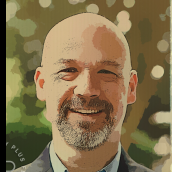Search the Community
Showing results for 'renew bariatrics'.
Found 17,501 results
-


Pre-op Diet/ Positive post!!!
Fiberartsfanatic replied to Beachbunny's topic in PRE-Operation Weight Loss Surgery Q&A
I start my preop liquid diet on Saturday. Luckily I only have to do this for three days. I have been told to drink 4 glasses of full sugar juice each with a scoop of unjury, have 2 cups of broth for the sodium content, and then as much sugar-free popsicles and jello I want. I think I am getting off easy compared to some of the people I work with who have had bariatric surgery. I am ready to get on with it and get my band installed next Tuesday! I am wondering what are good choices for the pureed portion of the diet? Any ideas out there that can be thrown my way? -


American board certified. Important?
sadymichele posted a topic in Mexico & Self-Pay Weight Loss Surgery
Are any of the bariatric doctors in Mexico American board certified. How important was this in your decision to go to Mexico? -


Am looking for surgeon in Kansas City Mo.
TheGh0st replied to Justwantmylifbk's topic in Weight Loss Surgeons & Hospitals
Dr. Malley's website is malleysurgical.com his office is in Mission, KS but performs his surgeries out of the NewHope Bariatric Hospital just north of 435 & Nall. The other site Wheetsin mentioned is Tallgrass and they are out of Topeka. There are several other doctors performing the lapband in the immediate KC area but in my own humble opinion Malley & Hoehn are the most experienced doctors in this area. Malley has performed over 1000 band operations and Hoehn isn't too far behind him. Malley is a proctor for the region teaching other docs learning how to do the surgery and Hoehn works out of Shawnee Mission Med Ctr which is one of the only hospitals to get its Center of Excellence Rating for this surgery so far. In other words I think it would be hard to go wrong with either surgeon. I would recommend checking out both of their seminars and more importantly attend each of their support group meetings before making a final decision. If you are interested there is also another local Bandster Group that is not affiliated with any doctors called KCBandsters. They have an online Yahoo group as well as monthly meetings at a local library. The group has people that have been banded by many different docs even several that were banded in Mexico as long as 7 years ago. They are having a meeting next Monday night if you are interested. It may be a good place to meet and question people in person from some of the various local docs all at once without some of the bias towards one doc or another you might get at a doctor's run group. PM me if you want more details. -
Greetings! I'm new to the group and praying for some advice. My sleeve surgery was 10 days ago. My daily protein recommendations are 60g – 90g. I am struggling to get in 30g, and I do mean struggling. The only thing I can keep down is ice water. The smell and slightest taste of protein shakes, protein water, and even unflavored protein (three different brands in 10 days) make me gag. I literally cannot tolerate anything sweet since surgery. I have tried sugar free jello, sugar free popsicles, thinned sugar fee pudding, sugar free juice, Crystal Light, etc. I have tried adding protein powder to soup, protein bariatric soup, and even made my own, all with the same result. When I plug my nose to force myself to drink the protein, my body actually tries to vomit but there’s nothing to come up. Has anyone had this happen? Any suggestions? I start pureed foods in 5 more days but realize I can’t sustain on ice water alone for much longer.
-
I just wanted to share my story for all Wells Fargo people out there that may be struggling with approval or may not know the process. I made a few mistakes along the way, so hopefully you can read this and learn from it. I started in November by going to the True Results (AIGB) location in Austin, TX last November. At this time, I was on Wells Fargo's Cigna Health Plan and was at aproximately 37 BMI. True Results did an introduction and the usual first step things and scheduled me for a sleep study to determine whether I had sleep apnea or not because under Cigna and most plans, you have to have 2 co-morbidities if you are between 35-40 BMI. It was determined that I had "mild" sleep apnea (which basically means they were interpreting the data in my favor to get me the surgery). After 2 sleep studies and multiple attempts to gather the necessary information through True Results, my case was dead in the Water. True Results, though helpful, were unable to help me move forward and so I dropped the issue for many months, feeling hopeless and helpless about my situation. After reviewing the different health plans the company offered, I switched to the Wells Fargo Health Plan (United Health Care Choice Plus Plan) because it seemed like much better coverage. In August of 2008, after gaining more weight and being close to 40 BMI I decided to seek help again. This time, I came to this website and searched for Wells Fargo, United Healthcare and everything else I could think of that could give me answers on how to proceed. I posted questions asking for help and was lucky enough to get a response from a fellow Wells Fargo Team Member who told me all she did was call the health care company and they started the process for her and helped her through every step of the way to approval. I took her advice and started back at square one. I signed up for myuhc.com, which gave me online access to my medical history and to all the United Healthcare Resource Networks (urnweb.com). From there, I submitted a request for information and for a phone call from a bariatric patient advocate. From that moment on, the process was smooth. Not always simple, but I had a United Healthcare representative personally working with me the whole time to help with the what she needed to issue an approval. If you work for Wells Fargo and want Bariatric Surgery, GET THE WELLS FARGO HEALTH PLAN (UNITED HEALTH CARE). It is the most expensive plan they offer, but it's worth it for the way you are treated and taken care of. Follow these steps and you'll be fine! 1) sign up for myuhc.com. request access to urnweb.com and visit the obesity section. review the "united healthcare centers of excellence" link. UHC requires you to use one of their "centers of excellence". these places have the lowest rates of problems with surgery and have undergone rigorous review to achieve this rating. united resource networks is also called "Optum Health". 2) submit an online request through urnweb.com to be contacted by a patient advocate. it took about 2 weeks for me to get the call. my advocates name was faith, and she was incredibly helpful. 3) the patient advocate will help you choose a center of excellence. they'll have you go to one of the orientations, where you'll meet the surgeons and staff and have all your questions answered. 4) you'll then be working in conjunction with the surgeons office and your patient advocate with UHC to get all the necessary documentation in place for an approval. a few things to expect: -a psychological evaluation (your advocate will help schedule this). my out of pocket expense for this was $80. -an appointment with a nutritionist. my out of pocket expense for this was $150 and it was a requirement of the surgeon, not UHC. -you may be getting phone calls from several different parties through the process. everyone who called me was super helpful and friendly. i hope this is helpful for someone out there. i'm happy to say that i've just recieved approval and have surgery scheduled for 12/16/08 with Dr. Keith Wright of South Texas Surgeons in San Antonio, TX.
-
First off, kulita, thank you for your service. That's awesome you found it was the toast, and glad you feel better! I'm doing just that - back to Proteins and reintroducing. I'm still feeling that burning even with the Protein shakes, so maybe my stomach lining is just raw and aggravated by anything right now. I've also cut out a Vitamin prescribed by a dermatologist - Nicazel. It is supposed to help with inflammation and breakouts, which I've been having recently. It's a B vitamin with minerals, and I've never had problems with it before. The surgeons office had said it was ok to take (I'm already on the bariatric multi with no problems). But I've cut it out; that was really the only new thing that I introduced recently. I am really having anxiety about these symptoms, and when I talked to my surgeon Sat. he was not very happy about getting called. I don't blame him, but that didn't help my mental health one bit. I haven't taken pepto yet, I'm not sure that's ok to take. I have taken Tums, but there was no effect. Hopefully today will be better!
-
mlsf, Do you have some insurance coverage, just not for bariatric surgery? I will need to talk to the staff at my surgeons about this, since testing confirmed a hiatal hernia. My insurance does cover that, so in my case I thought it was good that it is billed as a separate surgery. Otherwise the 3500 extra that the surgeon changes to sew up the hernia would be out-of-pocket for me. (if included in the lap-band surgery)
-


Lethargic, Fatigue, Mental Fog
AnneG replied to AnneG's topic in POST-Operation Weight Loss Surgery Q&A
So, there is definitely something going on with me. This morning I felt fine. I had breakfast- about 2 teaspoons of thin grits with cheese around 6 am. I felt fine and great and was thinking that today might be a good day to go do some walking this morning. I left the house to take my daughter to school on the other side of town and halfway there- at a red light I suddenly - felt shaky, off, my hands got clammy, and I got the sort of mental fog again- like mental confusion- and I felt like I was going to pass out. I got tunnel vision and I had to keep blinking my eyes and shaking my head to sort of stay with it. You know, I had my daughter in the truck with me- the last thing in the world I'd want- is to pass out while I'm driving. It scared me half to death- I managed to tell my daughter what was happening and informed her that I might have to pull over to the side of the road but that I was going to try to make it to a 7-11 about 2 blocks away. It was not a good area of town to break down.. for sure. I got to the 7-11 and by then I was sort of having panicky feelings about what if I passed out and I was trying to think of what to get to try to help my blood sugar- with the mental fog going on - it was very difficult to think- coherantly- I grabbed a bottle of orange juice after glancing around to see what was available- I opened it before I even got to the counter to pay for it- my hands were shaking as I opened the bottle and I was worried that I might not remember my pin number when I paid for it with my debit card because I had no cash. I managed to get two sips down me in the car and tried to call a family member to let them know where I was just in case- just in case I needed to call for an ambulance or just in case.. I needed someone to come get me. My Daughter's school is very close to the hospital and also my surgeons office. After 20 minutes and fretting about the fact that my daughter was already late for school and we were just under a mile away- I decided I should at least try to get her to school- I ran back in to the 7-11 to see if I could find something other than the orange juice because I'd been having problems with acid- and the orange juice reminded me of that and the idea of orange juice coming back up my already burning esophagus unnerved me. I grabbed an apple juice and looked around for some protein- still fuzzy headed- I saw the lunchables and grabbed one thinking either I could try to chew a bite of the turkey or if not then I could try the cheese. Then I slowly pulled out onto the street and attempted to make it to my daughters school- and we got there- course by then I was just barely holding it together for my daughters sake- but feeling absolutely positive that I really could have passed out while driving and killed us both. I let my daughter out of the truck to go to school - she was clearly worried about me and I tried to ease her concerns by telling her that I was just fine and the juice helped..but.. that wasn't entirely true. I parked on the side of the road there and tried to call my surgeons office since I was so close- much closer to there than home. The nurse came on to speak to me and - she seemed to indicate that I could come in- if I felt like I might pass out but- she didn't seem promising as to if they might could check to see what was going on with me. I felt like if I went in and she could SEE what was going on then at least they might send me over for some lab work- maybe iv fluids- something to try to figure out whats going on- or to help me to feel better. I got to the office-somehow- grabbed my juice which I'd taken 2 tiny sips of and nibbled on the piece of turkey there but it tasted terrible so didn't get more than a bite in- tho nibbled on a cracker more easily- just twice- around the edge - When the person came out..and i'm not even sure if it was a nurse- she told me they'd tried to slide me in around 10- it was then 8:45 or so. She said they had 2 big cases coming in and something going on at the hospital and she scolded me for having the apple juice in my hand- and asked me WHY WAS i DRINKING THAT- AS THO IT WAS A MORNING RITUAL OR SOMETHING. I tried to explain to her that clearly I'd had less than 2 sips of that juice- the bottle was still full and that 7-11 doesn't cater to bariatric patients in a situation of low sugar- she also scolded me for having the lunchable- I mean..really? I Haven't ANY JUICE- since before my pre op diet. I haven't had anything remotely similar to a lunchable since before my pre op diet. If I could ordered salmon or tuna- at 7-11 ..surely I would have but..as it stood.. I had few options.. lunchable..or .....donut.. I figured....I made a rational and good choice..by choosing the lunchable to try.. it's not like I ate a whole cracker..it's not like I ate a whole piece of the turkey..because I didn't come anywhere close to that. She suggested I ditch the lunchable- and maybe the juice or dilute it and go down to the first floor to the cafeteria and find some protein- and relax until 10 ish..when the might could slide me in but was sure to let me know that they couldn't do anything there- that they'd have to put in an order for me to have whatever they wanted done..somewhere else. So, I went down to the first floor- and began to look for the cafeteria- right away I noticed a generic starbucks called the espresso cafe but it was closed. So, I kept walking- you know- it's not easy to walk around when you feel shaky and off- There was a small sense of relief that if I passed out in the hallway that someone would find me tho.. that was better than sitting at a red light- and passing out. Small comforts- So I kept walking around..looking for this cafeteria or some sign showing the way to no avail and I saw a tech coming down the hall way and stopped him to ask where the cafeteria was and he said there was no cafeteria there- only the espresso cafe which I'd seen a half a mile back down the other hall way.. and of course it was still closed. Somewhere in all of THAT- I began to get ANGRY. Angry that I'd be waiting for another hour and a half..to MAYBE BE SLID into the schedule.. and that MAYBE.. some tests would be ordered but probably not done today- since fasting might be required. And angry that I'd been sent away to find a nonexistent cafeteria while on the verge of passing out- and scolded no less.. regarding the juice and stuff.... And Angry because I'd thrown out the apple juice and lunchable and now there was no place open for me to get ANYTHING. Angry enough that I went out to the valet parking attendant and asked for my truck- thinking I could at least get the orange juice I'd left in there and evidently angry enough to get into my truck..and decide to drive my self HOME... I called my mother on the cell phone and put her on speaker so that she could talk to me - as I drove home to make sure I had not passed out in route. Got home- managed to find some Protein mushie babyfood- ate a bit of that and sat down- called the dr's office to tell them that I LEFT..AND I'M HOME NOW..AND IF THEY WANT TO CALL ME.. THAT WOULD BE GOOD. The program coordinator called and said I needed to eat PROTEIN- SHE SAID IT LOUD AND SLOW AS THO I MIGHT BE HARD OF HEARING OR LEARNING CHALLENGED. I wanted to say something sarcastic in my defense- but I didn't- I honestly don't remember what else she said- I don't know if she said she'd make me an appointment or anything.. the conversation is a blur.. I have no idea what the woman said to me- I do remember her name tho. So- that's what's going on with me. -


have any of you wished you did gastric bypass instead
racheyrach posted a topic in POST-Operation Weight Loss Surgery Q&A
Hello! I new here and going through the process with the bariatric center and now at the decision of lap band or bypass. I first inteaded to do lap band but now am in the middle. Have anyone wished they did gastric bypass instead why? and if not what are you reasons for lap band? I need people that are going through the process cuz right now i can only hear what the doctor and my family are saying:redface: -
The Bariatric doctors at Tampa General Hospital still see band patients. I'd reach out to them.
-
Just a side note: Does anyone else take Calcium citrate!?!?! I just picked up some yesterday and those things are horse pills!!! lol. I am lucky I'm one of the few in my bariatric program to only take 4/day rather than 6 but still, swallowing these bad boys are sounding pretty scary.
- 13 replies
-
- vsg
- gastric sleeve
-
(and 2 more)
Tagged with:
-


Helping the MD's!
CowgirlJane replied to Connie Stapleton PhD's topic in Weight Loss Surgery Magazine
@@Valentina I shared those beliefs until I met the surgeons at my bariatric practice. Never have I experienced the compassion, taking time to educate and encouraging realistic yet life changing results. They are tuned into the emotional issues - don't try to solve them, but do screen for them. Best of all, they believe in follow up. Lately they have been doing radio spots, which I normally detest from doctors, but the tone of theirs is awesome. It isn't just about recruiting new surgical patients, they speak about helping people get back on track in such a welcoming way. I know my surgeons are a rare breed, but I feel like primary care docs lack training in obesity and really don't know enough about metabolic disorders to fill the role. I do agree there is often a gap, especially over the long haul. I am 4 years out and haven't been seen by my bariatric team in quite awhile. I think I will go in this year because it gives me some peace of mind and because I have had a rough go of it Healthwise over the last 2 months. Bloodwork is good, but I wonder if something Is"up" or if I am just unlucky lately. Sent from my KFJWI using the BariatricPal App -
I’m writing this article as an invitation for each of you to help educate physicians about the issues you face related to weight loss surgery and what you believe is needed to enhance your care, either before or after weight loss surgery. The American Society for Metabolic and Bariatric Surgery (ASMBS) emails each new edition of “connect,” their official news magazine to its members upon publication. In it, they provide a synopsis of recent articles of interest related to WLS. One noted article this week is titled, “What Matters: What’s the magic behind successful bariatric patients?” and is written by Dr. Jon O. Ebbert, an internist at Mayo Clinic. In the article, Dr. Ebbert states, “I was left wondering how I can best help my patients using this information.” Let’s help him help his patients! I’ll share the short article, give my editorial (what I didn’t share with Dr. Ebbert) and then write the response I did share with him. Finally, I’ll provide the link where you, too, can share feedback directly about the article, or send it to me and I will be happy to forward it! The article: “MARCH 3, 2016 A fair number of my patients have had or are undergoing bariatric surgery. Disconcertingly, a not insignificant number of them are regaining the weight after surgery. Weight regain will occur in 20% of patients undergoing bariatric surgery after initial weight loss. When this occurs, not only do we have a patient with an altered gut putting them at risk for nutritional deficiencies if we are not fastidious in our follow-up, but they are discouraged and overweight again. Add this to the concern that bariatric surgery has been associated with an increase in suicides (2.33-3.63 per 1000 patient-years), and we may have some cause for alarm. So, what predicts success – and can we facilitate it? Several factors have been shown to predict successful weight loss after bariatric surgery. An “active coping style” (that is, planning vs. denial) and adherence to follow-up after bariatric surgery have both been shown to be associated with a higher percentage of excess weight loss. Interestingly, psychological burden and motivation have not been associated with weight loss. In a recent article, Lori Liebl, Ph.D., and her colleagues conducted a qualitative study of the experiences of adults who successfully maintained weight loss after bariatric surgery (J Clin Nurs. 2016 Feb 23. doi: 10.1111/jocn.13129). Success was defined as 50% or more of the excessive weight loss 24 months after bariatric surgery. The voice of the successful bariatric patient is an interesting and important one. Several themes were identified: 1) taking life back (“I did it for myself”); 2) a new lease on life (“There are things I can do now that I am not exhausted”); 3) the importance of social support; 4) avoiding the negative (terminating unhealthy relationships in which “food is love”); 5) the void (food addiction and sense of loss); 6) fighting food demons; 7) finding the happy weight; and 8) a ripple effect (that is, if you don’t eat it, the rest of family doesn’t, either). I was left wondering how I can best help my patients using this information. First, I think the themes can mature our empathy for the struggles that these patients face, and perhaps help us combat bias. Second, I think this knowledge can inform early discussions around what sorts of things need to be lined up for after the procedure, such as social support. Finally, I think the themes can be universalized and help us counsel patients who may be struggling with weight, but who are otherwise not candidates for bariatric surgery.” My Editorial I’m grateful that an internist is addressing the topic of WLS. I love that he is thinking about ways to use the information gleaned from the research he notes related to the behaviors of those who have “successful weight maintenance” following weight loss surgery. Pardon my sarcasm, but, WOW! Getting information about the behaviors that led to weight loss from patients who have 50% or more of excessive weight loss 24 months after bariatric surgery? Does that really tell us anything? I’d venture to say that the majority of professionals in the field would note the surgery itself as being primarily responsible for the “success” of the weight loss at 24 months out. I’m NOT saying that many patients fail to put forth a great deal of effort at that point, because I know many do work very hard during those first 24 months. But come on… let’s talk to successful weight maintainers at 5 years after surgery to get a better indication of what they are doing to manage a healthy weight. I’d also be curious to know at what point in time after surgery the statistic was obtained noting “Weight regain will occur in 20% of patients undergoing bariatric surgery after initial weight loss.” How much weight regain? After how much time? If you look closely at research in many fields, you can find numbers that vary widely on a particular topic. Dr. Ebbert states, “Psychological burden and motivation have not been associated with weight loss.” I wasn’t at all sure what this meant. Questioning my comprehension skills, I asked some other people how they interpreted that statement, and they couldn’t tell, either. If the implication is that psychological issues have no impact on weight loss or lack thereof, I have to disagree. But then, I have no research to back up my hypothesis. I do have 11 years working in this field and the anecdotal evidence of hundreds of patients that says otherwise. I’d say depression interferes with the desire/ability to follow through with certain behaviors that require significant energy. I’d say that intense shame interferes with the perceived efficacy to follow through for the long haul with behaviors necessary to sustain weight loss – well past two years of having WLS. I don’t know… I believe poor self-esteem, a history of “failing” with “diets,” unresolved grief, loss, and abuse issues sometimes affect a person’s perceived ability to succeed. I also believe treating these psychological issues in conjunction with treating one’s physiology and teaching important skills such as healthy coping mechanisms, positive self-talk, and efficacy-enhancing skills is a recipe for better outcomes. My Response to Dr. Ebbert (in an attempt to be brief): “Dr. Ebbert - With all due respect, the medical field is, in my opinion, missing several very large pieces of the puzzle with the surgical weight loss population in terms of treating them. I am a licensed clinical psychologist. I work in a surgical weight loss clinic and have spoken with literally thousands of patients who have had weight loss surgery. Obesity is a complicated disease that is more than just physiological. I treat the underlying and associated psychological co-morbidities, which the medical community largely ignores, except under the broad category of "Behavior Modification." I assure you that there is a lot more than changing behaviors that needs to be addressed with this population. A vast majority of this population suffers with deep shame and low self-esteem, both rendering them inefficient at maintaining motivation to follow through on a long-term basis with "behavior modification." I am working tirelessly to try to address the elephants in the OR, but surgeons don't really want to listen to myself - or the patients - who are clamoring for additional mental health care (MORE than behavior modification) following WLS when their "issues" interfere with healthy behaviors - just like before surgery. More suicides? Maybe because in a sense, we take away the patients’ coping skill (food) and throw them to the wolves. I've created a video series that I require all of my patients to watch before surgery to help them understand the deeper issues they may face and to urge them to seek counseling. I could use help in the medical community. You in?” I do believe, and I thank Dr. Ebbert for noting, “this knowledge can inform early discussions around what sorts of things need to be lined up for after the procedure.” Let’s all pitch in and share with Dr. Ebbert and other interested physicians what you need to be successful, on and off the scale, for years and years following WLS. Please share your comments at: http://www.clinicalendocrinologynews.com/comments/what-matters-whats-the-magic-behind-successful-bariatric-patients/016f71fe2abdc0198ac42d75d039d712.html?comments_link=1 Or, post your comments here or contact me via my web page: www.conniestapletonphd.com Let’s pitch in and help! Connie Stapleton, Ph.D.
-
Not according to my dietician. This has everything. They don’t taste as good as the bariatric ones from vitamin shoppe but the fewer pills the better!
-
The American Society for Metabolic and Bariatric Surgery (ASMBS) emails each new edition of “connect,” their official news magazine to its members upon publication. In it, they provide a synopsis of recent articles of interest related to WLS. One noted article this week is titled, “What Matters: What’s the magic behind successful bariatric patients?” and is written by Dr. Jon O. Ebbert, an internist at Mayo Clinic. In the article, Dr. Ebbert states, “I was left wondering how I can best help my patients using this information.” Let’s help him help his patients! I’ll share the short article, give my editorial (what I didn’t share with Dr. Ebbert) and then write the response I did share with him. Finally, I’ll provide the link where you, too, can share feedback directly about the article, or send it to me and I will be happy to forward it! The article: “MARCH 3, 2016 A fair number of my patients have had or are undergoing bariatric surgery. Disconcertingly, a not insignificant number of them are regaining the weight after surgery. Weight regain will occur in 20% of patients undergoing bariatric surgery after initial weight loss. When this occurs, not only do we have a patient with an altered gut putting them at risk for nutritional deficiencies if we are not fastidious in our follow-up, but they are discouraged and overweight again. Add this to the concern that bariatric surgery has been associated with an increase in suicides (2.33-3.63 per 1000 patient-years), and we may have some cause for alarm. So, what predicts success – and can we facilitate it? Several factors have been shown to predict successful weight loss after bariatric surgery. An “active coping style” (that is, planning vs. denial) and adherence to follow-up after bariatric surgery have both been shown to be associated with a higher percentage of excess weight loss. Interestingly, psychological burden and motivation have not been associated with weight loss. In a recent article, Lori Liebl, Ph.D., and her colleagues conducted a qualitative study of the experiences of adults who successfully maintained weight loss after bariatric surgery (J Clin Nurs. 2016 Feb 23. doi: 10.1111/jocn.13129). Success was defined as 50% or more of the excessive weight loss 24 months after bariatric surgery. The voice of the successful bariatric patient is an interesting and important one. Several themes were identified: 1) taking life back (“I did it for myself”); 2) a new lease on life (“There are things I can do now that I am not exhausted”); 3) the importance of social support; 4) avoiding the negative (terminating unhealthy relationships in which “food is love”); 5) the void (food addiction and sense of loss); 6) fighting food demons; 7) finding the happy weight; and 8) a ripple effect (that is, if you don’t eat it, the rest of family doesn’t, either). I was left wondering how I can best help my patients using this information. First, I think the themes can mature our empathy for the struggles that these patients face, and perhaps help us combat bias. Second, I think this knowledge can inform early discussions around what sorts of things need to be lined up for after the procedure, such as social support. Finally, I think the themes can be universalized and help us counsel patients who may be struggling with weight, but who are otherwise not candidates for bariatric surgery.” My Editorial I’m grateful that an internist is addressing the topic of WLS. I love that he is thinking about ways to use the information gleaned from the research he notes related to the behaviors of those who have “successful weight maintenance” following weight loss surgery. Pardon my sarcasm, but, WOW! Getting information about the behaviors that led to weight loss from patients who have 50% or more of excessive weight loss 24 months after bariatric surgery? Does that really tell us anything? I’d venture to say that the majority of professionals in the field would note the surgery itself as being primarily responsible for the “success” of the weight loss at 24 months out. I’m NOT saying that many patients fail to put forth a great deal of effort at that point, because I know many do work very hard during those first 24 months. But come on… let’s talk to successful weight maintainers at 5 years after surgery to get a better indication of what they are doing to manage a healthy weight. I’d also be curious to know at what point in time after surgery the statistic was obtained noting “Weight regain will occur in 20% of patients undergoing bariatric surgery after initial weight loss.” How much weight regain? After how much time? If you look closely at research in many fields, you can find numbers that vary widely on a particular topic. Dr. Ebbert states, “Psychological burden and motivation have not been associated with weight loss.” I wasn’t at all sure what this meant. Questioning my comprehension skills, I asked some other people how they interpreted that statement, and they couldn’t tell, either. If the implication is that psychological issues have no impact on weight loss or lack thereof, I have to disagree. But then, I have no research to back up my hypothesis. I do have 11 years working in this field and the anecdotal evidence of hundreds of patients that says otherwise. I’d say depression interferes with the desire/ability to follow through with certain behaviors that require significant energy. I’d say that intense shame interferes with the perceived efficacy to follow through for the long haul with behaviors necessary to sustain weight loss – well past two years of having WLS. I don’t know… I believe poor self-esteem, a history of “failing” with “diets,” unresolved grief, loss, and abuse issues sometimes affect a person’s perceived ability to succeed. I also believe treating these psychological issues in conjunction with treating one’s physiology and teaching important skills such as healthy coping mechanisms, positive self-talk, and efficacy-enhancing skills is a recipe for better outcomes. My Response to Dr. Ebbert (in an attempt to be brief): “Dr. Ebbert - With all due respect, the medical field is, in my opinion, missing several very large pieces of the puzzle with the surgical weight loss population in terms of treating them. I am a licensed clinical psychologist. I work in a surgical weight loss clinic and have spoken with literally thousands of patients who have had weight loss surgery. Obesity is a complicated disease that is more than just physiological. I treat the underlying and associated psychological co-morbidities, which the medical community largely ignores, except under the broad category of "Behavior Modification." I assure you that there is a lot more than changing behaviors that needs to be addressed with this population. A vast majority of this population suffers with deep shame and low self-esteem, both rendering them inefficient at maintaining motivation to follow through on a long-term basis with "behavior modification." I am working tirelessly to try to address the elephants in the OR, but surgeons don't really want to listen to myself - or the patients - who are clamoring for additional mental health care (MORE than behavior modification) following WLS when their "issues" interfere with healthy behaviors - just like before surgery. More suicides? Maybe because in a sense, we take away the patients’ coping skill (food) and throw them to the wolves. I've created a video series that I require all of my patients to watch before surgery to help them understand the deeper issues they may face and to urge them to seek counseling. I could use help in the medical community. You in?” I do believe, and I thank Dr. Ebbert for noting, “this knowledge can inform early discussions around what sorts of things need to be lined up for after the procedure.” Let’s all pitch in and share with Dr. Ebbert and other interested physicians what you need to be successful, on and off the scale, for years and years following WLS. Please share your comments at: http://www.clinicalendocrinologynews.com/comments/what-matters-whats-the-magic-behind-successful-bariatric-patients/016f71fe2abdc0198ac42d75d039d712.html?comments_link=1 Or, post your comments here or contact me via my web page: www.conniestapletonphd.com Let’s pitch in and help! Connie Stapleton, Ph.D.
-
JoJo, My surgeon said if I really wanted the diet pop, I could have it *but* that most people have a problem with the carbonation. He suggested that if I really wanted it to let it go flat first. It's a myth that the carbonation will expand your pouch. Some people's comfort zone is in obedience without question to their doctors...and that's ok...but they find it difficult to deal with people who see their caregivers as just one more 'book' of knowledge. I've gone to great lengths to choose my doctors. I made appointments, paid their office fee and 'interviewed' many before choosing them. Not just my bariatric surgeon, but my gynecologist, internal medicine, endocrinologist, etc. I respect their knowledge and judgment immensely...but ultimately, this is my body and *I* will make the final decision on how to treat it. I require a 'reason' for why I should or should not do something. In the case of the pop, there was no surgical/health reason to give it up *BUT* there were other reasons. Studies show that the 'sweetness' (even of diet pop) and sodium actually increase the cravings to eat. Also, the chemicals used to create carbonation prevent our bodies from absorbing the Calcium our bones need (if I understand the explanation correctly) increasing our risk of osteoporosis. Based on that information, I chose to give up the pop, but others may not find the reasons compelling enough. I agree with you, by the way, on the craving issue. If I'm craving something, I'll tell myself, not today, but if I want it tomorrow, I'll have it. Usually, the next morning, I don't want it...but if I do, I'll have it. Sometimes those cravings go away because they're just a momentary weakness. My doc and I were talking about this and she said that's a very healthy way to deal with our cravings because she agreed that if we completely deny ourselves, at some point we'll go overboard and binge. We won't have that *one* cookie we've been craving. We'll eat the whole bag. .
-
has anyone had to deal with the whole sexual harrassment issue at work. a man from the uppermost management has made it perfectly clear that he would like to ADVANCE my career....... he stopped by my office last nite. after hours for him...... came on so strong, telling me how smart and sexy i am. blah blah blah. i was so uncomfortable. im not sure how to respond. i have a good job and he is really popular. no one would believe me if i said he was coming on to me. i cant believe that im the first women he has done this too. i dont want any trouble or to even deal with this situation. im so tired of married old men coming on to me, but this one is my boss and he is very insistant........... i told him last nite that i wasnt interested in ADVANCING MY CAREER. he said he would give me more time to think about it. i am worried about retaliation. i already had trouble before with a coworker and he doesnt work here anymore. i did not report him but people saw how he was treating me and the did not renew his contract. so i got lucky that time. but now im freaking out. i dont need this now . i have too much on my plate already. i keep thinking " what am i doing to deserve this" i dont dress sexy at work. i wear scrubs. i dont flirt with men at work. so why me. im not weak or passive......... anyone else have to deal with this.........
-


Any Miami, Fl Pre-sleevers?
Masko5 replied to beachsleever's topic in PRE-Operation Weight Loss Surgery Q&A
Chest X-ray, EKG, labs DONE! Primary doctor signed off....one more test and done! Meet with bariatric team on the 29th, cardiologist on the 31st.....once he signs off...it's 'OPERATION ' time!! Yeah me! -


Finally did a full protein day
MarinaGirl replied to LifeIsAllGood's topic in POST-Operation Weight Loss Surgery Q&A
My surgeon does not recommend Flinstones as they don't have the right vitamins & minerals or amounts for bariatric patients. They're not an adequate source of nutrition for us but unfortunately many docs still recommend them. For example, they don't have the right kind of vitamin A, calcium or iron and are missing selenium. There are much better complete multi-vitamins for adults than Flinstones children's vitamins. Flinstones are also not the cheapest or best tasting vitamins out there. -


Joined To Meet New People That’s On The Same Path As Me
Kay07 replied to MACPOWER's topic in PRE-Operation Weight Loss Surgery Q&A
Probably because it's not fixing something broken or painful, you know? It's like we equate the "OW this hurts" to "Yes this surgery needs to happen." However with Bariatric Surgery, it's not fixing an owie. It's preventing big future ones so it doesn't feel as necessary or logical? I guess that's how I feel. -
Call your ins Co and ask before you start everything. Some reps will be nice enough to tell you the requirements for approval. With that BMI you probably wouldn't need comorbidities. You may need a referral to a Bariatric surgeon, letter of medical necessity etc.
-


Biotin how much are you taking
robinswls replied to mishelcrz88's topic in Gastric Sleeve Surgery Forums
So just an update.. I had quit taking the biotin and a month later I started breaking out again.. I did some research and saw other people who had Bariatric surgery were having issues with breakouts.. I am going to start taking it again and see if I notice any change -
I am on the fence with this topic- Yes, my weight was largely due to my own poor choices, and didn't expect the world to revolve around me. But, a doctor's office that caters to an overweight population should have bigger and heavy-duty chairs. Any bariatric doc should have this as a priority, especially if they care about having to replace broken furniture and, more importantly, subject their patients to the shame and discomfort of wedging into a chair that is too small. One of the things about losing weight is that I don't need the big chairs anymore. My Bariatric surgeon's office has mostly huge chairs, but now that I can, I seek out the small ones in the lobby, as a small victory.
-
I think some of the insurance companies ares tarting to realize it is cheaper to pay for bariatric surgery than it is to deal with the health issues of the obese.
-


Need Help With Hesitation Before Surgery
OutsideMatchInside replied to Redo2017's topic in Gastric Sleeve Surgery Forums
I didn't have months leading up to surgery, I had been working on improving my health and losing weight for about 2-3 years before surgery. Then I moved and had to get a new Dr. This Dr did a complete workup on my and my health was just tanking. My weight wasn't going anywhere, I was developing high blood pressure in addition to the diabetes I already had. My heart was enlarged and acting abnormally (that is genetic but the weight was not helping). All of this before the age of 40. Those are all old people problems. My grandparents didn't have blood pressure issues until their 70s. No one in my family is diabetic. I come from a family of slim athletic people. All my issues boiled down to my life choices. I decided enough was enough. Surgery was my last ditch effort to improve my health. I felt like I was dying slowly anyway, and I felt the worse outcome I could have with surgery would be a faster death. I felt like I had absolutely nothing to lose. The process to get qualified for surgery because of my heart went all the way from EKG to Cardiac Cath. No one my age should have been undergoing a Cardiac Cath. The fact it was happening to me just because I was basically crushing my heart with fat was just too much. Signing those waiver forms was a pretty frightening experience. So no after that I had no fears. I also didn't have months to wait for surgery. I went from first visit to surgery in 8 weeks. I saw my new Dr for the first time in early April. Attended a bariatric seminar at the end of April. Saw the Surgeon the first time mid May, had surgery mid July. Once I decided that was the path I was on I rushed and made it go as fast as possible. If I didn't have insurance I would have self paid at that point to make it happen quickly. Post-op early on I had moments of doubt because I had low carb dieted before, lost weight but plateaued. I had moments of doubt that this would be no different. The difference is there is no quitting your diet post-op. When you stall out and are frustrated there is no ordering a large pizza and downing it with a 2 liter (even though people that post here still manage to do it). You are just kind of stuck eating the same, so you work through plateaus and you keep losing. Even by the time I had my first stall though, my health had improved so much, it was already well worth it.














